The U.S. Senate passed President Donald Trump’s $9 billion spending cuts package early Thursday morning.
The bill is a part of the Department of Government Efficiency (DOGE) efforts to cut funding, and will now move to the House of Representatives, where it will have to pass by the July 18 deadline under the Impound Control Act.
- The Senate passed Trump's $9B spending cuts package, canceling $8B in foreign aid and $1.1B for public broadcasters like NPR and PBS.
- The bill passed 51-48, with only two Republicans opposing; it bypassed the 60-vote threshold using the Impound Control Act.
- Changes made before the vote included removing $400M cut to PEPFAR and protecting funding for tribal radio, gaining Senate support.
The bill will then be sent to Trump for his signature.
U.S. Senate passed Donald Trump’s $9 billion spending cuts package Thursday morning (Pictured: Russell Vought)
Image credits: Win McNamee/Getty Images
The House first passed the original version of the spending cuts package in June. But after the Senate made changes and approved a revised version early Thursday, the House must now vote again.
If lawmakers miss the deadline, the government will be required to spend the money as originally planned, and the cuts will not take effect.
The Impound Control Act also allowed the Republicans to advance the bill without Democratic support, allowing it to pass the Senate with a simple majority and bypass the usual 60-vote threshold.
The revised bill was passed by the Senate in a narrow 51-48 vote after more than 12 hours of debate and amendment voting. Only two Republicans, Senators Susan Collins of Maine and Lisa Murkowski of Alaska, voted against it.
Image credits: Jemal Countess/Getty Images
Vice President JD Vance was ready to cast a tie-breaking vote, but did not need to after Senator Tina Smith (D-MN) was hospitalized and missed the vote.
The package proposes to cancel $8 billion in foreign aid and $1.1 billion in funding for public broadcasters like NPR and PBS.
NPR and PBS have long been contested by conservatives for their alleged liberal bias.
“They have betrayed the trust of the American people,” Republican Senator Eric Schmitt of Missouri told reporters, Bloomberg reported. “They have been ideologically captured by the left.”
The cuts propose to cancel $8 billion in foreign aid and over $1 billion in public broadcaster funding
Image credits: John Greim/Getty Images
Murkowski proposed a late amendment to restore Corporation for Public Broadcasting (CPB) funding, which funds NPR and PBS.
She referred to the 7.3-magnitude earthquake that struck the Alaska Peninsula and Kodiak Island on Wednesday and an alert she’d received from public radio station KUCB in Unalaska, in the Aleutian Islands. She used that as an example to illustrate the importance of public media in emergencies.
Murkowski highlighted how the station ran on only three staff members, but they managed to broadcast emergency alerts during a tsunami warning. Additionally, the local community was instructed to listen to the public radio station—which has the potential to save many lives.
Murkowski introduced an amendment “that protects public media, their independence, their ability to provide local news, weather reports and, yes, emergency alerts.”
The amendment did not receive a majority vote.
Amy Klobuchar fearmongers: People will not get alerts for natural disasters without PBS and NPR! pic.twitter.com/EEJQtyBQUX
— Western Lensman (@WesternLensman) July 16, 2025
Just two days ago, the Trump administration sued to remove three CPB board members who refused to step down after being dismissed.
The CPB pushed back, arguing the president lacks the authority to fire its board, setting up a legal battle in federal court.
To gain enough support, the White House made several changes to the bill before the final vote. One major concession was removing a $400 million cut to the PEPFAR program, which fights HIV/AIDS globally.
That move helped win over some Republican senators who were on the fence.
Sen. Mike Rounds of South Dakota also agreed to support the bill after negotiating a deal to keep funding for tribal radio stations in his state.
He said he worked with Trump to “find money that could be reallocated to continue grants to tribal radio stations without interruption.”
Image credits: The White House/Flickr
Despite the changes, some Republicans still opposed the bill. Collins and Murkowski were not convinced, citing that the administration had not given enough detail about which programs would lose funding.
“The rescissions package has a big problem—nobody really knows what program reductions are in it,” Collins said.
“That isn’t because we haven’t had time to review the bill. Instead, the problem is that the White House Office of Management and Budget has never provided the details that would normally be part of this process.”
Murkowski added: “We’re lawmakers. We should be legislating. What we’re getting now is a direction from the White House and being told, ‘This is the priority. We want you to execute on it. We’ll be back with you with another round.’ I don’t accept that,” she said.
Two Republican lawmakers voting against the spending cuts, including Sen. Murkowski
Image credits: Jemal Countess/Getty Images
Senate Minority Leader Chuck Schumer said the foreign aid cuts would harm starving children abroad. He also worried this would cede powers to China, which has been building goodwill abroad.
“It’s simple incompetence and cruelty based on extreme ideology,” Schumer said on the Senate floor.
He further argued that Republicans are misusing the bipartisan annual spending bill process by using partisan budget reconciliation to add funds to agencies they favor.
The Trump administration plans to continue this approach, signalling that this vote is the first in a series of future efforts to cut what they consider wasteful spending in Washington.
Russell Vought, Trump’s budget director, refused to clarify which other agencies would be targeted.
Vought, who once worked closely with Elon Musk in DOGE, has also floated the idea of “pocket rescissions.” These would allow for any rescission proposals made after August 15 to result in an automatic cancellation of aid.
Image credits: Demetrius Freeman/Getty Images
House Speaker Mike Johnson said he was ready to act quickly. “We’re going to process whatever they send us, whenever they send us,” he said.
If the House approves the bill by Friday, it will head to Trump’s desk. The move would mark a rare success for a rescission request, a type of bill that cancels money Congress has already approved.


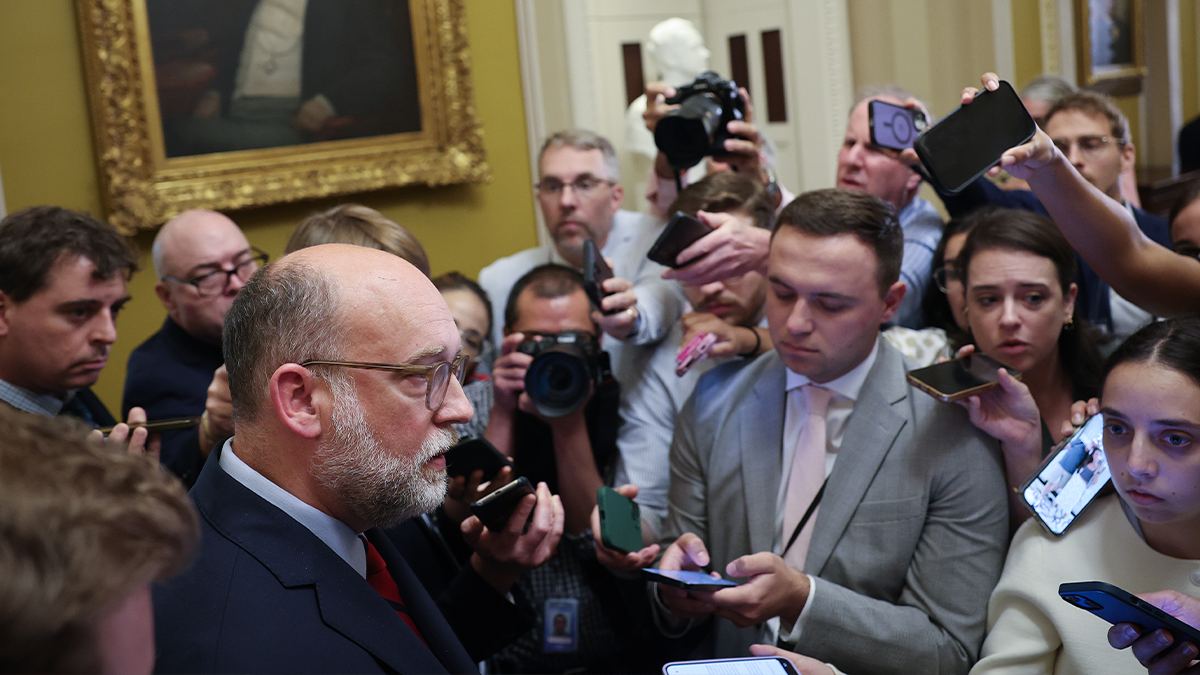
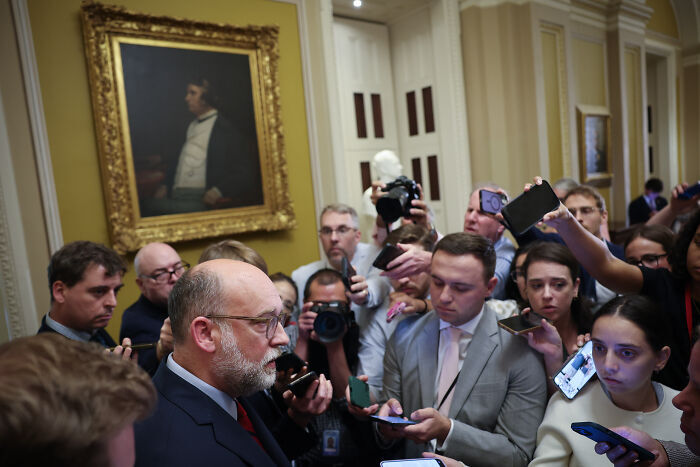
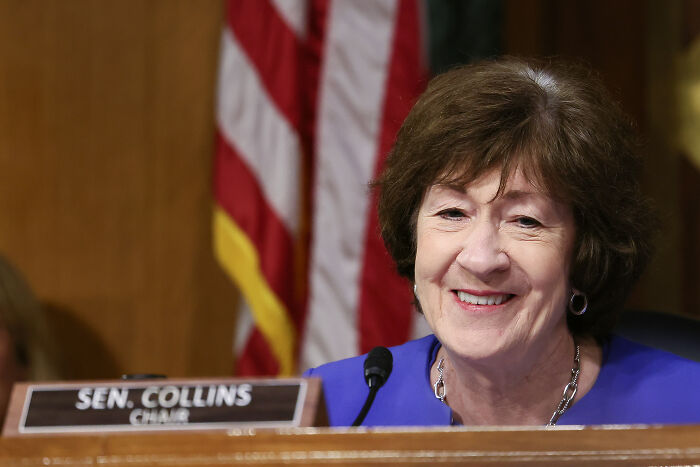

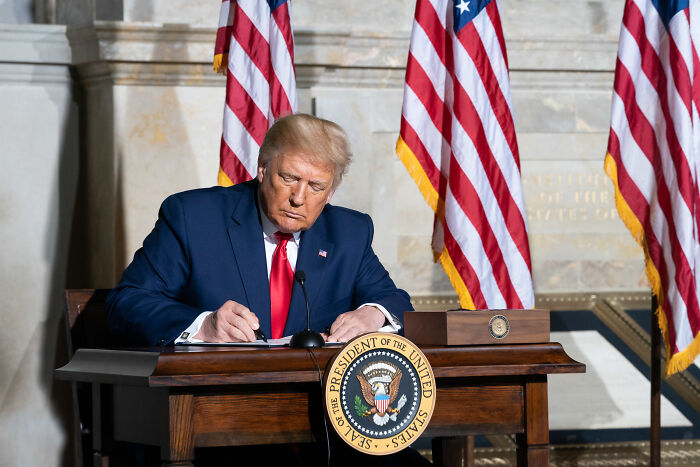
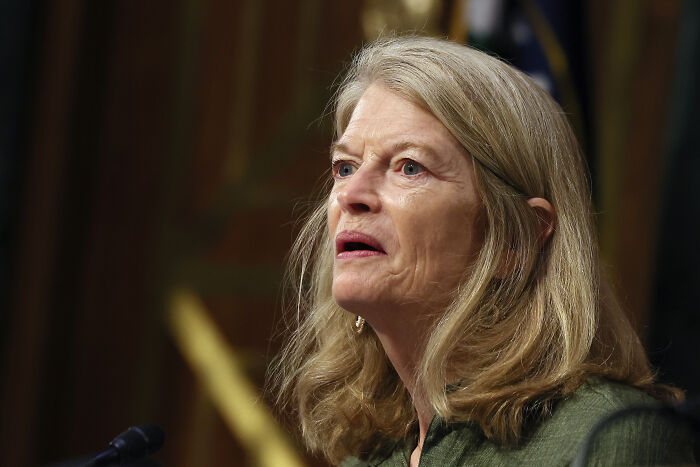
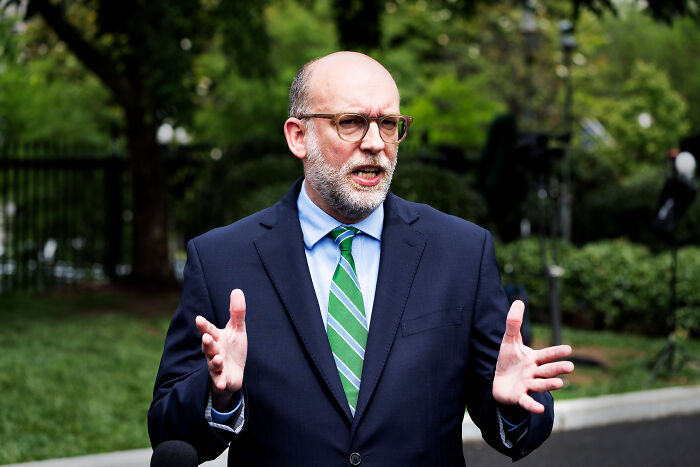



15
0